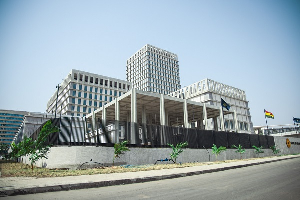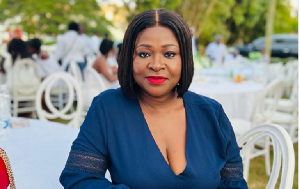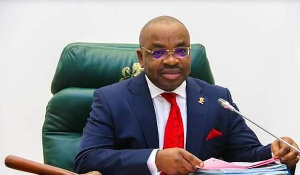The Nigerian senate has introduced a bill that aims to prevent the sexual harassment of university students.
The proposed legislation follows a BBC investigation that uncovered alleged sexual misconduct by lecturers in Nigeria and Ghana.
The senate’s deputy president said he hoped the BBC’s investigation would help energise support for the bill.
Senator Ovie Omo-Agege said that, as a father, he found sexual harassment in universities was unacceptable.
If the bill becomes law, it would be illegal for lecturers to make sexual advances towards students.
Under the proposed law, read in the senate on Wednesday, teaching staff could face up to 14 years in jail for having sexual relationships with their students.
The anti-sexual harassment bill was originally introduced in 2016 but didn’t get through both houses in parliament.
Critics rejected the bill because it did not cover sexual harassment in the workplace and included a defence for consent. The defence for consent has been removed from the latest bill.
Footage of alleged sexual misconduct by academics at the University of Lagos and the University of Ghana was broadcast on Monday in a documentary by the BBC’s Africa Eye investigative unit.
The documentary has provoked outrage in Nigeria and Ghana, leading to the suspension of four lecturers implicated in the film.
Both institutions have distanced themselves from the claims and suspended the lecturers involved, who denied the allegations.
What did the film show?
Several lecturers were secretly filmed allegedly propositioning and sexually harassing the BBC’s uncover reporters.
One of those lecturers was Boniface Igbeneghu, who teaches at the University of Lagos. He was filmed putting inappropriate questions and requests toward a BBC journalist, who was posing as a prospective student aged 17.
On a final meeting between the pair, the lecturer was filmed physically harassing her and asking to kiss her inside his locked office. He also appeared to threaten to tell her mother if she was “disobedient” towards him.
The full hour-long documentary also featured interactions with two lecturers at the University of Ghana.
Both of the men, Professor Ransford Gyampo and Dr Paul Kwame Butakor, have been suspended but denied they were offering “sex for grades” in the undercover exchanges.
General News of Thursday, 10 October 2019
Source: bbc.com

















